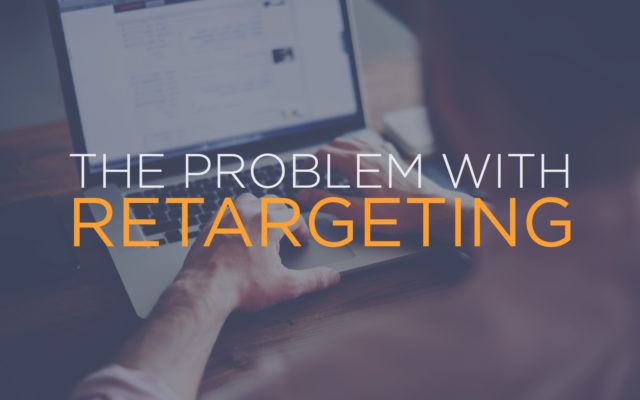According to Econsultancy, only 2% of web traffic converts on its first visit. Retargeting is the method used to try and convert the other 98%. But, asks MeetTheBoss TV’s Ben Thompson, is it working?
According to a recent Econsultancy study, only 2% of web traffic converts on its first visit. Retargeting – those digital ads that seem to follow us around the web – is the method companies use to try and convert the other 98%.
And it’s largely successful: recent research suggests that retargeting can boost ad response by up to 400 percent. But it does require marketers to tread an increasingly fine line.
One problem is that what matters one minute to a consumer may be irrelevant the next. For instance, a customer who has just bought a new television probably won’t need another two days later, so it’s pointless re-advertising more TVs to them. That customer has moved on. Ads have to be relevant in the moment, and speak to consumers when they are most likely to buy.
Another issue is the stalker effect, with retargeting increasingly seen as creepy or unsettling. People are suspicious of being followed at the best of times – the retargeting experience has to feel natural, which means serving ads in the right place. If I’m on a gambling site, it’s jarring to suddenly be hounded by ads for the babycare products I was searching for yesterday. Whereas if I’m on a travel site, it makes sense to retarget me with ads for the hotels I’ve been looking at. Context is important.
A third challenge is repetition. Indeed, while 53% of respondents to a recent survey claim that ads from a relevant company are useful when initially researching a product or service, 55% are actively put off buying an item they have previously expressed an interest in online if they are retargeted with ads multiple times. Just 10% are more likely to buy an item after being served multiple times with the same promotion. Striking that balance between exposure and overexposure is key.
Retargeting is a powerful tool – when used effectively. But it needs to be qualified by greater intelligence to ensure it is successful.
Article by channel:
Everything you need to know about Digital Transformation
The best articles, news and events direct to your inbox






